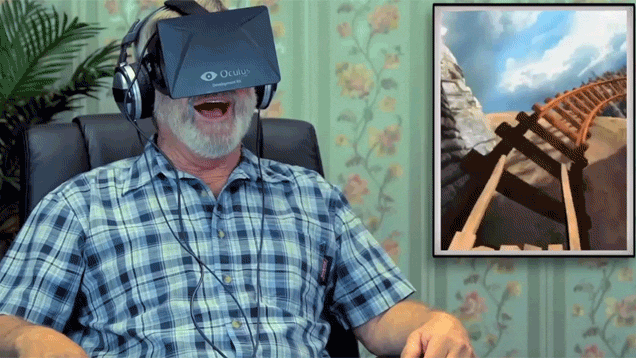Everyone knows Virtual Reality and Augmented Reality are the next big things, but the when, what, where and how remain undefined. You can even fairly ask “why?” VR certainly appeals to those in all corners of the entertainment industry, promising to embellish everything from family blockbusters to hard-core pornography.
More sober applications also abound. Imagine people being able to step into a sort of time machine and experience what the Holocaust or slavery was truly like. Or perhaps a modern catastrophe, like the aching wound that is Aleppo, could be simulated. It would be akin to “walking through the news,” and it might sensitize the masses–or, perhaps, have the opposite effect. Maybe it will diminish the immensity of the moral horror to a fleeting experience that can be entered and exited, just another thing to do before binge-watching a sitcom.
Deceased loved ones could be “kept alive” with the tool, allowing the living to continue a relationship of sorts with them (which chills me). Soldiers could “return” to the battlefield to work past PTSD. Older folks would have the option of visiting with their younger selves. None of these scenarios is beyond belief.
In an excellent Wall Street Journal article, Elizabeth Dwoskin, Michael Alison Chandler and Brian Fung explore VR’s possibilities as well as its potential ethical and emotional pitfalls. An excerpt:
Over the past two years, technology giants and Hollywood have poured millions of dollars into virtual reality in the hope that the medium will transform gaming and entertainment. But a growing crop of filmmakers, policymakers, researchers, human rights workers and even some law enforcement officials see a broader societal purpose in the emerging medium’s stunning ability to make people feel as if they have experienced an event firsthand.
These advocates cite research that shows virtual reality can push the boundaries of empathy and influence decision-making about issues ranging from policing to the environment. But they’re also facing new questions about the unintended consequences of an early-stage technology that may doing harm to users by putting them in situations that seem all too real.
This summer, a 15-person film crew flew to the concentration camps of Auschwitz and Majdanek to record the horrors of the Holocaust in virtual reality as part of an effort to preserve the memory of the atrocity for future generations. They filmed a scene in which viewers who don a VR headset can enter a gas chamber, escorted by a three-dimensional hologram of a living survivor.
“We don’t actually know whether it’s this empathy machine or whether, if you have an immersive experience, you traumatize your users,” said Stephen Smith, executive director of the Shoah Foundation at the University of Southern California, which is creating the Holocaust simulations in partnership with virtual reality start-ups. “There’s also a danger that when you have so many extreme experiences, that you become desensitized.”•
Whenever I read something about VR, I immediately wonder what Jacob L. Moreno, the student of Freud who invented the psychodrama (and hypnodrama) would have done with the tool. It’s definitely necessary to be wary of how living in the virtual could impact our behavior in the actual, because no matter how much we’ve gotten into traditional films, TV shows and paintings, VR is a further immersion and will affect our brains differently. But I assume some patients (e.g., soldiers with PTSD) could be aided by such technology.
Below are two videos of Moreno in action at psychodrama theaters (the first in 1964, the second in 1948), places where individuals could act out scenarios from their lives within a group dynamic, hopefully gaining insight into their behavior, especially the self-destructive kind.

